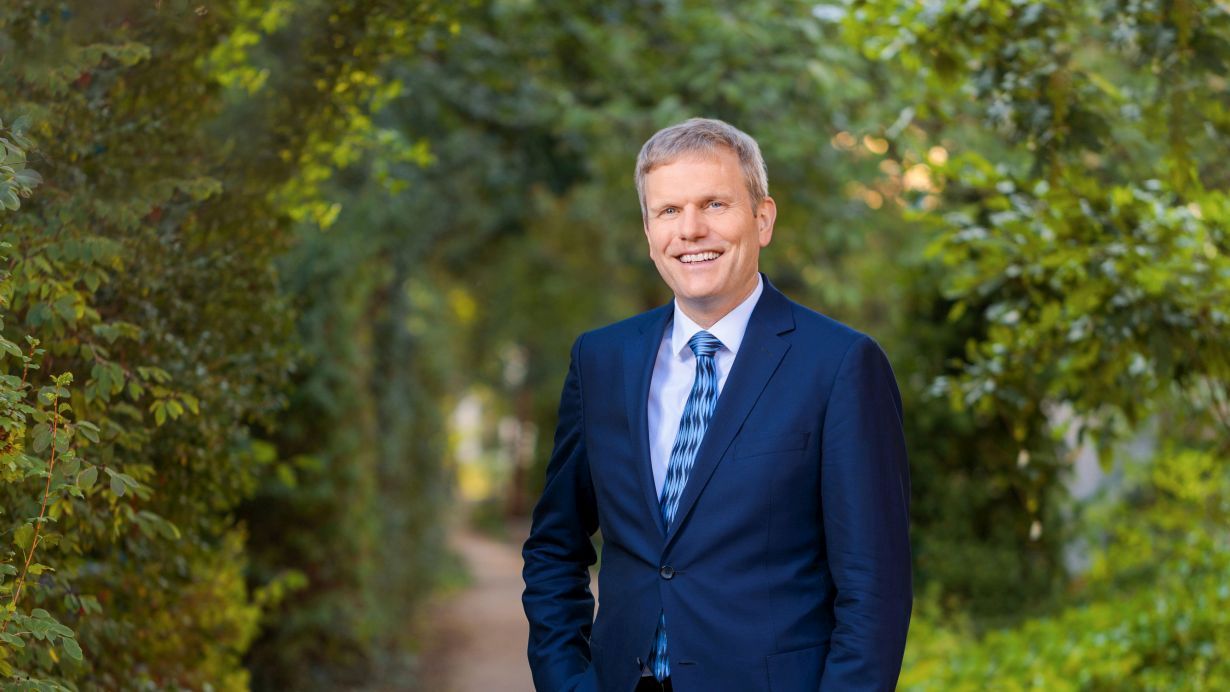Change in the Executive Board of Karlsruhe Institute of Technology (KIT): On September 1, 2024, Dr. Stefan Schwartze will take office as Vice President Finance, Human Resources, and Infrastructure of KIT. The successor to Michael Ganß, who recently retired, was elected by the Supervisory Board of KIT in January of this year and confirmed by the KIT Senate in February for a term of office of six years. Schwartze (58) is joining KIT from the German Research Center for Geosciences in Potsdam (GFZ), where he was in charge of administrative matters for more than a decade.
“I am starting my new role at KIT with joy and enthusiasm,” says Dr. Stefan Schwartze. “I am really excited to be able to bring my experience from various institutions in the science system to KIT, which unites the worlds of university and non-university research in a unique way.”
“I am delighted that Dr. Stefan Schwartze, an expert with many years of experience in the administration of universities and large research institutions, is now joining KIT's executive team,” says the Chairman of the Supervisory Board of KIT, Professor Michael Kaschke. “I am convinced that he will contribute with his great energy and wide-ranging expertise to further developing the enormous potential of the ‘Research University in the Helmholtz Association’. On behalf of the entire Supervisory Board, I wish him lots of luck and success in this challenging task.”
Focus on Challenges
“We are delighted that he is now on board, and on behalf of the Executive Board and all employees, I would like to extend a warm welcome to KIT to Stefan Schwartze,” says Professor Oliver Kraft, Acting President of KIT. “Stefan Schwartze is taking over a responsible department. A clever personnel strategy, well-structured service divisions, and efficient facility management are prerequisites for top performance in research, academic education, and transfer. With the further digitalization of administration and the further administrative integration of Large-scale Research Responsibilities and University Responsibilities in line with the 2nd KIT Further Development Act, he has important tasks ahead of him.”
“KIT,” says Vice President Stefan Schwartze, looking ahead, “is facing major challenges in the department for which I am responsible, too. However, I am confident that with the wealth of experience and commitment of all employees, we are well equipped for the further development of KIT. We must take advantage of the opportunities offered by the continuous harmonization and digitalization of administrative processes, the reduction of bureaucratic obstacles, and the newly obtained building owner status for the University Responsibilities.”
Dr. Stefan Schwartze – About the Person
Dr. Stefan Schwartze, born in 1966, studied law at the universities of Mannheim, Heidelberg, and Münster and earned his doctorate at the University of Bochum. After working for the German Research Foundation and the Federal Ministry of Education and Research, the Wuppertal native was an administrative member of the Foundation Board of the Max Delbrück Center for Molecular Medicine in Berlin from 2003 to 2008 and Chancellor of the University of Münster from 2008 to 2011. Schwartze has held the position of Administrative Executive Director of the Helmholtz Centre Potsdam – German Research Centre for Geosciences (GFZ) since 2011. From 2019 to 2022, he was also Administrative Vice President of the Helmholtz Association of German Research Centers, and from 2021 to 2022 he was Spokesman for the Administrative Directors of the Helmholtz Centers.
Being “The Research University in the Helmholtz Association”, KIT creates and imparts knowledge for the society and the environment. It is the objective to make significant contributions to the global challenges in the fields of energy, mobility, and information. For this, about 10,000 employees cooperate in a broad range of disciplines in natural sciences, engineering sciences, economics, and the humanities and social sciences. KIT prepares its 22,800 students for responsible tasks in society, industry, and science by offering research-based study programs. Innovation efforts at KIT build a bridge between important scientific findings and their application for the benefit of society, economic prosperity, and the preservation of our natural basis of life. KIT is one of the German universities of excellence.

